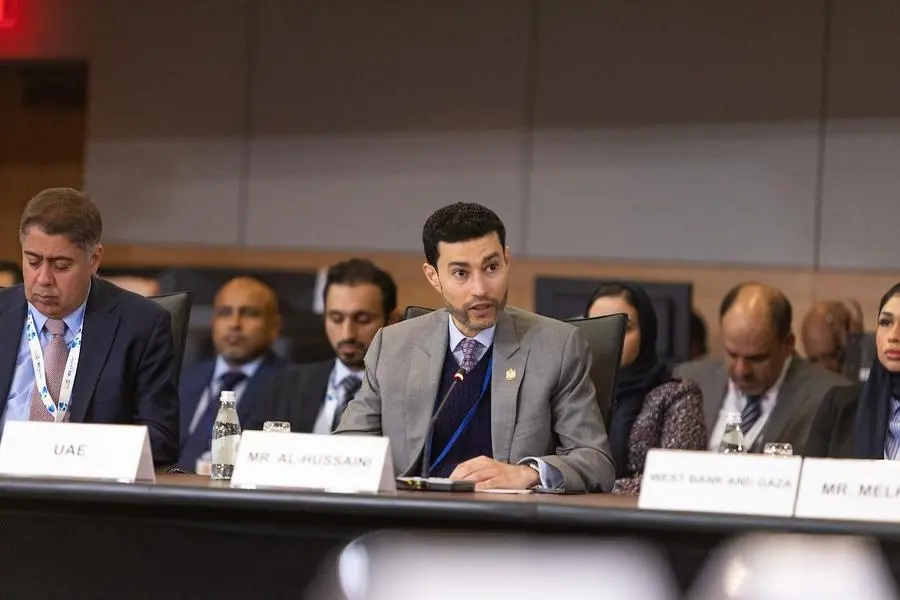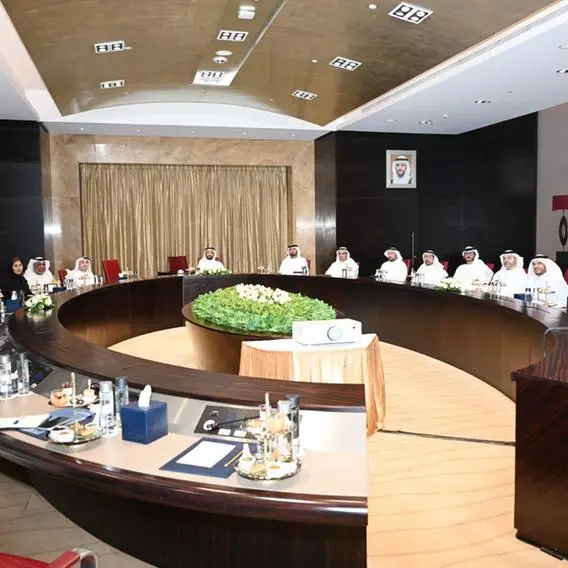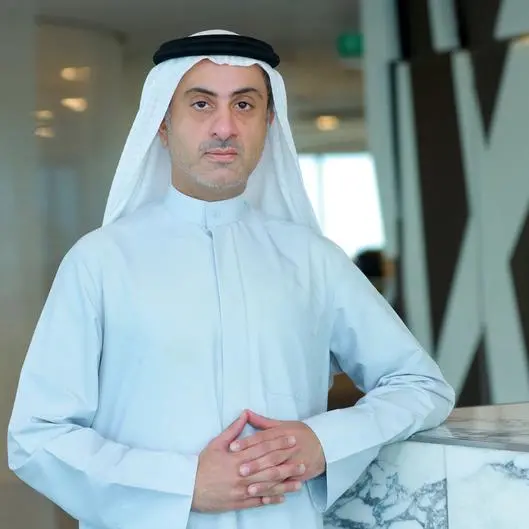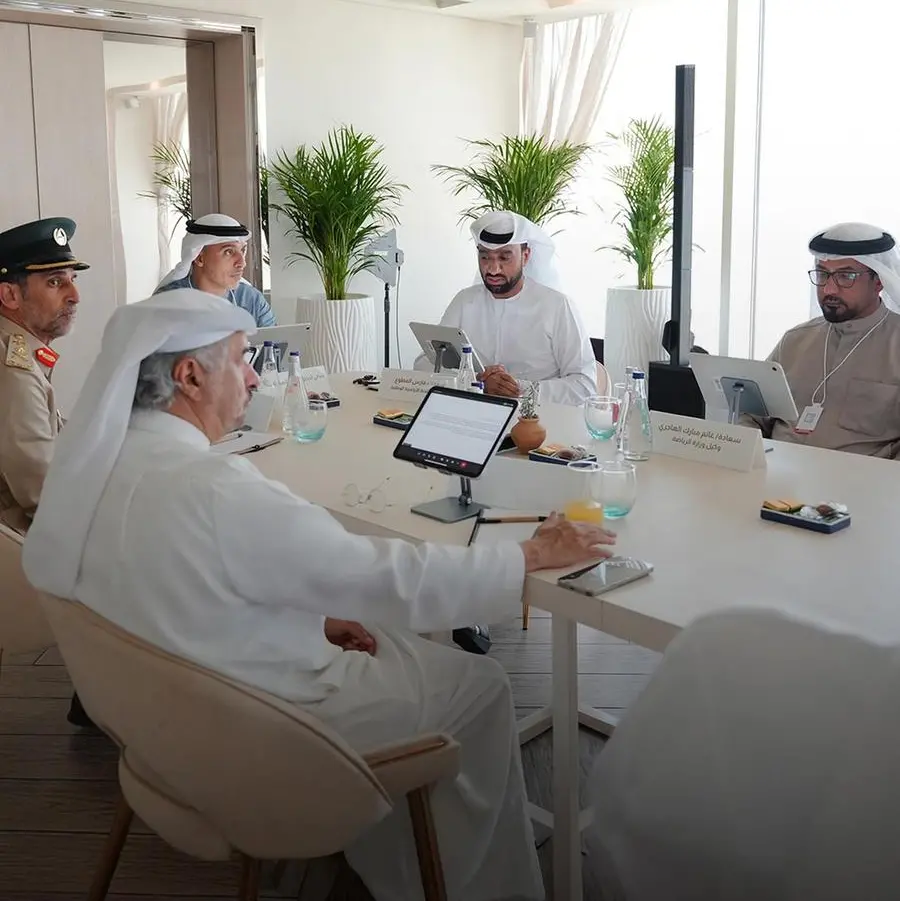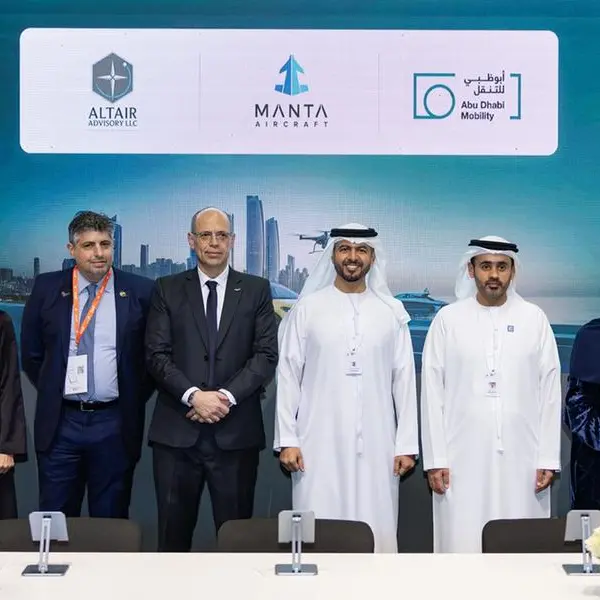PHOTO
- Mohamed Al Hussaini: We emphasise the pivotal role of the IMF in devising solutions to the challenges facing the world today
- Mohamed Al Hussaini: The UAE’s economic outlook remains strong, with growth expected to reach 3.9% by the end of this year. Inflation in the UAE is also projected to drop to 3.2% by the end of this year, down from 4.8% last year
Subtitles:
- The meeting was chaired by Ms. Kristalina Georgieva, Managing Director of the International Monetary Fund
- The meeting discussed key strategic issues, economic growth, and future prospects
Washington: The United Arab Emirates, represented by the Ministry of Finance, participated in the meeting of finance ministers, central bank governors, and heads of regional financial institutions in the Middle East, North Africa, Afghanistan and Pakistan (MENAP) region. The meeting was held on the sidelines of the 2023 Spring Meetings of the World Bank Group (WBG) and the International Monetary Fund (IMF) in Washington, DC from the 10 to 16 April, and discussed key strategic issues and economic growth in the region, in addition to future prospects and fiscal policy requirements to combat inflation.
His Excellency Mohamed Bin Hadi Al Hussaini, Minister of State for Financial Affairs, participated in the meeting, which was chaired by Ms. Kristalina Georgieva, Managing Director of the IMF. The meeting was attended by a number of finance ministers, central bank governors, and heads of regional financial institutions in the MENAP region.
His Excellency Al Hussaini thanked Ms. Kristalina Georgieva and emphasised the pivotal role of the IMF in devising solutions to the challenges facing the world today. His Excellency said: “The UAE’s economic outlook remains strong, with growth expected to reach 3.9% by the end of this year. Inflation in the UAE is also projected to drop to 3.2% by the end of this year, down from 4.8% last year, led by stabilising prices and the receding effects of imported inflation globally, while locally, rents and wages are expected to contribute to this trend.”
His Excellency Al Hussaini also noted that despite the economic resilience that the UAE and the wider region had demonstrated, various countries in the region remain exposed to the elevated global uncertainties as highlighted in the IMF Background Note, which underpins the need for regional collaboration efforts and to work with the Fund. This is to accelerate efforts to promote fiscal sustainability and address debt vulnerability, which remain a key concern, with potential for longer-term effects on fiscal balances and disruptions to structural development plans.
His Excellency praised the Fund’s perspective on leveraging fiscal policy to address inflationary pressures and promote economic stability in the region. “The persistence of the current economic challenges will continue to entail tradeoffs between debt sustainability and long-term sustainable development objectives”, His Excellency added.
His Excellency Al Hussaini concluded his speech by emphasising the need for further discussions on these issues in the Annual Meetings in Marrakech, as well as the need to address global strategic priorities. These include advancing the SDGs agenda and growth focusing on social inclusion, in addition to addressing the fundamental issues that still affect climate finance in line with COP28 agenda, which will be hosted by the UAE later this year.
-Ends-
For more information, please contact:
Mary Khamasmieh
Weber Shandwick
E: mkhamasmieh@webershandwick.com
Rawad Khattar
Weber Shandwick
E: RKhattar@webershandwick.com
Sara Abuhassira Amani El Achkar
Weber Shandwick Weber Shandwick
E: SAbuhassira@webershandwick.com E: AElAchkar@webershandwick.com
